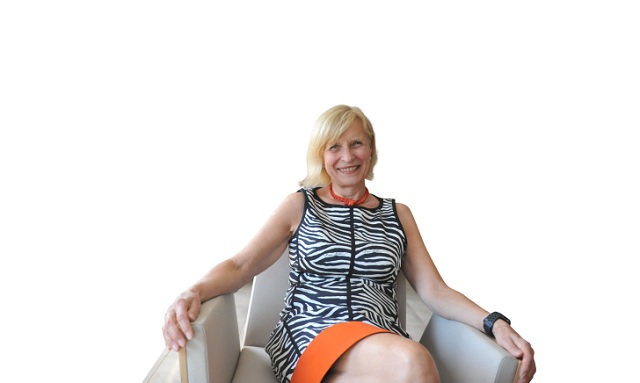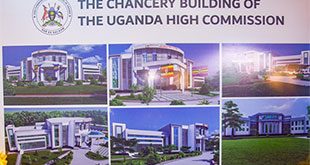
INTERVIEW | The ominous parting words of Elin Østebø Johansen, the outgoing Norwegian Ambassador to Uganda. Before leaving the country on Aug.15, she spoke to The Independent’s Ronald Musoke about the highlights of her four-year tour of duty in Uganda.
What impressions are you leaving Uganda with?
I have been the Norwegian Ambassador to Uganda, Rwanda, Burundi and the Great Lakes since September 01, 2019. It has been an interesting journey, considering Uganda and the region was new to me. My background is multilateral trade negotiations, as Deputy Director General on trade in the Ministry of Foreign Affairs in Oslo, as Minister Counselor and World Trade Organisation (WTO) Ambassador for Norway in Geneva and as the Norwegian Ambassador to the Organisation of Economic Cooperation and Development (OECD) and the International Energy Agency (IEA) in Paris. So, it was a steep learning curve to be a bilateral ambassador to Uganda and the other countries. One lesson was that Uganda is a main actor in this region. Uganda plays an important role in South Sudan, in Somalia with the peacekeeping process, and in ongoing peace processes in DR Congo. After the Russian invasion of Ukraine, we have seen the different parties of that conflict actually leaning towards Africa for support. We have seen Russian diplomats and ministers coming to Africa, we have seen U.S. ministers coming in, and recently the initiative from South Africa bringing together a team of mediators from African countries, including Uganda, obviously based on the role that Uganda has in the region. Another impression I am leaving Uganda with, is that it is really difficult to understand the politics of this country. After four years of doing a lot of research and reading and trying to pick up as much information as possible in conversations with Ugandans – high and low – I still feel I have a lot to learn. Interestingly, Uganda has remained a relatively stable country for so many years. This is particularly impressive, given the many conflicts in the region. The stability has served Uganda well. But can it last? Today, a lot of people in Uganda are wondering what is coming next. Talking to people, the answers and views differ substantially. So, the big question for Uganda today is what the future will bring for this beautiful country.
What have been some of the highlights of your stay?
The people. The Ugandans. Their sense of humour, their warmth, the dancing, the fun and their high level of professionalism. I have been working with many people, including many tough women in Uganda’s administration. It’s been a real pleasure, it’s been so much fun. Norwegians and Ugandans are different in many ways, but at the same time, these differences have contributed to an easy cooperation. It has been great to work with Ugandan bureaucrats, CSOs, NGOs and people in general, and for me, that is one of my highlights. I am also impressed by the inclusive refugee response. Uganda is not a rich country and yet it hosts 1.5 million refugees. Not putting them in camps but providing them with land in settlements to kick-start their lives is really impressive. I have been to many refugee settlements, and it’s been some of the most interesting, if sometimes heartbreaking journeys, during my tenure here. My final highlight is my wonderful staff at the Norwegian Embassy. I have had both local and Norwegian staff who work exceptionally well together – delivering great results, always on time, supporting each other and sustaining a wonderful working environment.
How about your frustrations and disappointments?
Corruption. I am concerned about the level of corruption in this country. How funds are diverted in most imaginative ways, taken from those who should have benefitted. I don’t think that is helpful for the development of this country. This level of corruption undermines the economy as such and the prospects for further economic growth and development, to the detriment of Ugandan people’s daily life. This country is so rich, and it could achieve a lot more if it just gets the investments into the right places without the money being schemed off.
How would you describe the current relations between Norway and Uganda?
Norway and Uganda might be very far apart politically and geographically, but traditionally the relations have been very good. Starting with forestry, medicine, and higher education decades ago, the cooperation on higher education between our universities has been excellent over the years. This is still ongoing and is one of the milestones in our cooperation. But, in my view, the most important part of our cooperation is in the energy sector, where Norway is happy to share with Uganda 100 years’ experience in hydro power development and 50 years in petroleum exploitation and management. This cooperation has been excellent for both parties, mainly because it is carried out expert to expert, bureaucrat to bureaucrat, learning from and inspiring each other. On the substance, Uganda is one of our favourite partners in Africa, according to the Norwegian energy community. Thirdly, thanks to Uganda’s role and leadership in the region, we have participated in and supported political processes in the region. One example is South Sudan, where Norway is part of the so-called Troika with the UK and the USA, which has worked closely with Uganda to facilitate the peace process, and still does.
What are some of the programmes you have overseen during your tour of duty?
In the Oil for Development programme, we have been working to strengthen the management of the country’s oil and gas resources. Norway is not involved in oil exploitation in Uganda. The focus has been on institution building to manage the Ugandan oil resources, environment, safety, oil spill management, and the development of legal and regulatory frameworks in a great number of areas. The main objective of the Oil for Development programme in Uganda is to support the national Oil and Gas policy of Uganda: “To use the country’s oil and gas resources to contribute to early achievement of poverty eradication and creating lasting value to the society.” It’s a good objective. We hope that what we have been doing in Uganda for so many years actually helps to create the necessary structures in order to make these objectives come true. Our focus is to help Uganda to make sure that the incomes accruing from the oil and gas sector will actually benefit society and the people of Uganda. We have worked very closely with the Uganda Electricity Generation Company Limited (UEGCL) on hydro power dam operation and maintenance and capacity building together with the Electricity Regulatory Authority (ERA). We have a project on electrification of refugee settlements with the Rural Electrification Agency (REA). In education, we recently funded a study for the Minister of Education and Sports on additional payments in primary schools, as a cooperation between Makerere University and the University of Agder in Norway. We have had projects on vocational education in renewable energy. We have also supported the UN Emergency Response on COVID-19 which is an education project that was initiated to help learners get back on track. In the health sector, we were the first to provide COVID-19 vaccines for Ugandans. We provided a grant for vaccines and also COVID-19 testing kit supplies. Through the World Health Organization (WHO) and the World Food Programme (WFP), we also provided funds for food for the health workers and for patients in hospitals during the Ebola outbreak last year. On refugees and gender, we have the LEAP project with UN Women to educate women in refugee settlements. Four months ago, we also signed an agreement with WFP on food supplies to refugees, because funds are going down and the food rations are also going down. We also have a sexual and reproductive health project under the theme, “My body, My Life, My World.” It is about encouraging women to stand up for their sexual rights.
Of course, you have heard about the Democratic Governance Facility (DGF). I was the Chair during the difficult discussions after its suspension in 2021, including direct talks with H.E. the President and tough and constructive negotiations with the Attorney General. In the end, we managed to amicably close it. That was an interesting journey. We also had an election project with the UNDP just before the 2021 General Election that was halted. Finally, Norway has funded a study by the International Energy Agency (IEA), and we now have a draft report which I handed over to the President in my recent meeting with him to say goodbye. The study is an analysis of the entire energy sector of Uganda and it gives a background that can be used in order to plan for the new and interesting future of the energy sector in Uganda. The IEA is also looking forward to assist in developing Uganda’s energy master plan that has been registered by the Ministry of Energy and Mineral Development. The IEA does not do such work for non-members, so, this is something I am really proud of.
What is your take on the Anti-Homosexuality Act, which again was passed by Uganda’s Parliament recently?
When I heard about ‘AHA’ (the acronym for the Anti-Homosexuality Act, 2023), my memory went back to the 1980s and the Norwegian, internationally recognised pop group with the same name. Its most famous song is “Take on me.” Unfortunately, the Ugandan ‘AHA’ does not hit the same positive chords. From a Norwegian point of view, discrimination based on ethnicity, gender or sexual orientation is something we do not condone. We believe in equal treatment and equal opportunity for all citizens. Norway is also against the death penalty. These principles are important to us and this is where we are coming from. Obviously, I am in favour of protecting children against all kinds of abuse. And that goes for all children, not only those who are sexually abused by someone of the same gender. I am also against recruitment and grooming of children into prostitution. Buying sexual services from sex workers is illegal in Norway, unrelated to gender. I appreciate that other countries have different values and beliefs. My main concern though is how this law is affecting persons in Uganda based on their sexual orientation, not by choice but by birth. How it is affecting their friends and families who are required to report on them to the authorities. How this will affect the fight against HIV in this beautiful country, as many would be afraid of accessing treatment. My hope now, rests with the Uganda legal system. Hopefully, its best legal minds will be put to work to determine how this law relates to the Ugandan Constitution, including the provisions on non-discrimination.
Where are you headed next?
I am heading back to Oslo after almost 15 years abroad. I am close to retirement from the Foreign Service, but I will not let go of the energy sector yet, especially now, when it is at the core of global politics. Returning home will give me the opportunity to be with my wonderful family full time again. However, after four years in Uganda, my extended Ugandan family will always have a prominent place in my heart.
 The Independent Uganda: You get the Truth we Pay the Price
The Independent Uganda: You get the Truth we Pay the Price



